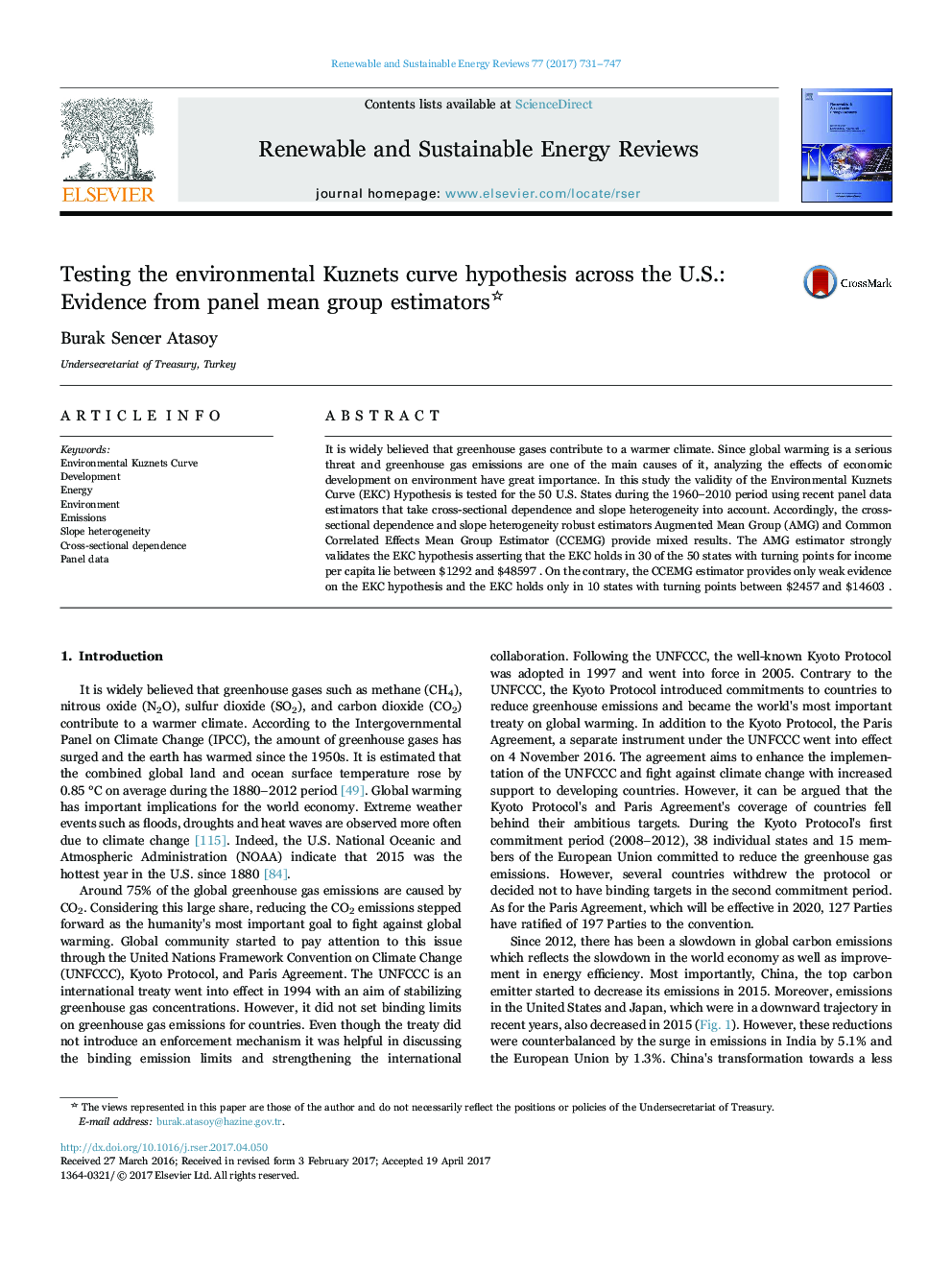| Article ID | Journal | Published Year | Pages | File Type |
|---|---|---|---|---|
| 5482974 | Renewable and Sustainable Energy Reviews | 2017 | 17 Pages |
Abstract
It is widely believed that greenhouse gases contribute to a warmer climate. Since global warming is a serious threat and greenhouse gas emissions are one of the main causes of it, analyzing the effects of economic development on environment have great importance. In this study the validity of the Environmental Kuznets Curve (EKC) Hypothesis is tested for the 50 U.S. States during the 1960-2010 period using recent panel data estimators that take cross-sectional dependence and slope heterogeneity into account. Accordingly, the cross-sectional dependence and slope heterogeneity robust estimators Augmented Mean Group (AMG) and Common Correlated Effects Mean Group Estimator (CCEMG) provide mixed results. The AMG estimator strongly validates the EKC hypothesis asserting that the EKC holds in 30 of the 50 states with turning points for income per capita lie between $1292 and $48597 . On the contrary, the CCEMG estimator provides only weak evidence on the EKC hypothesis and the EKC holds only in 10 states with turning points between $2457 and $14603 .
Keywords
Related Topics
Physical Sciences and Engineering
Energy
Renewable Energy, Sustainability and the Environment
Authors
Burak Sencer Atasoy,
